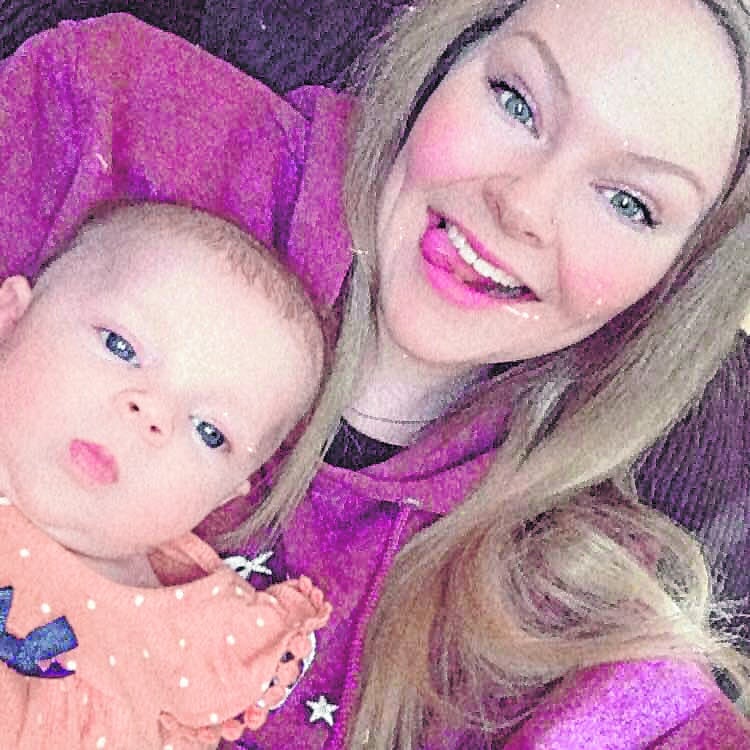The evening of March 23, 2020, Brown County received news of its first case of COVID-19. News of the second case arrived March 27 and the third on March 29.
Nine hundred fifty more would follow in the year to come, with 40 of those cases ending in death.
For those of us the virus didn’t personally reach — and regardless of how we felt about it — it still left a big impact on our ability to live a “normal” life.
We asked our Facebook readers to volunteer to have some “super-honest conversations” about how their lives have been altered in the past year. This story below is the first in a three-week series titled “Our year of flux.”
Among the interviews we’ve done so far, we feel like we don’t yet have the important perspectives of teens/college students, or people working in a service industry, such as a restaurant or hotel. So, if that description fits you, and you’d like to share your story, please send a message to [email protected] or give us a call at 812-988-2221.
When Ginny Warren found out she was pregnant on March 5, 2020, she started coming up with a birth plan. About two weeks later, the world turned upside down.
“Things got crazy really fast,” she said.
On a low-high scale of 1 to 5 about the pandemic, Ginny was at a concern level of 5 when it all began. Had she not been pregnant, she would have been at a 1.
She was working in healthcare with Indiana Mentor, a service that runs group homes and other programs for those with physical or mental needs.

As soon as the state started setting precautions, Ginny’s doctor told her they didn’t want her at work risking exposure to the novel coronavirus. One of the many unknowns at the time was how vulnerable pregnant women would be.
Ginny has now been off work for nearly a year, since March 17, 2020.
With a drastic change in work schedule, Ginny said she and her partner, Austin, were in a tight spot. Even with unemployment assistance, she took a financial hit, making less than what she did at work.
“It did alter my spending habits. I used to be able to spend money on anything,” she said. “It was a struggle, but yes, we made it.”
One of the struggles was having to go to prenatal appointments without Austin. Ginny, who is 21, went to all but two alone. She wanted him to be included in the process, but he was only able to be at two ultrasounds. He would often sit in the car during other appointments because he wasn’t allowed in.
Austin was able to be in the room when their daughter was born.
Ginny knows several women in her “mommy group” who have opted for home births instead of hospital births, knowing they’ll be able to have people with them.
Before she went to the hospital to deliver, she and Austin had to be COVID tested. They both tested negative.
After laboring 12 hours, Lilly was born on Nov. 11, 2020, at 5 pounds, 12 ounces.
Two weeks later, Ginny took her to urgent care when she would not coughing. Lilly tested positive for the coronavirus.
“I was terrified,” she said.
Now, at four months old, Lilly still has a lingering cough, which doctors said could last for as “long as it wants.”
Ginny had sanitized everything in their home two days before she was born, so she is sure Lilly came in contact with COVID at the hospital.
Navigating through the pandemic has been complicated, but Ginny is thankful for a family network that’s been a strong support system in many ways. Be it financially or emotionally, they have been willing to give.
Her mother lives an hour and a a half away and still makes the effort to visit about twice a week, Ginny said. Family in Nineveh, Morgantown and Columbus “all make a really big effort” to keep in touch, which Ginny said has helped her stay sane when they were isolated.
“We just stay away from people,” she said. “I have my select few, but other than that … I don’t want to risk me, Lilly, or my mom with diabetes getting sick. It’s just really scary right now.”
Ginny had to set a lot of boundaries when her daughter came home, wanting to keep her healthy. Some people didn’t like it. They wanted to see the baby.
“I did what I needed to protect my little girl,” Ginny said.
Despite the decrease in the size of social circles, Ginny said her relationships have grown closer, everyone needing in each other in troubling times.
“Tragedies bring people together,” she said.
She has taken everything day by day, with everything seeming to change on a daily basis. For now, she’s staying at home, but has a few job interviews lined up.
“She needs her mommy working,” Ginny said, even though putting Lilly in daycare still concerns her. She has felt a bit better about the pandemic, though, with vaccine distribution.
Ginny said she is now a 3 on a scale of 1 to 5 and is feeling more optimistic, despite life’s current strangeness.
“Life is just so weird,” she said, “seeing people in masks everywhere we go.”
In the photos Ginny has from her labor and delivery, she is wearing two masks: one oxygen mask, one surgical. One day, Lilly will ask why she was wearing a mask and Ginny will have to explain what was going on when she made her way into the world.
Last year’s events as well as her own personal journey had Ginny dealing with at lot: finding out she was pregnant at the beginning of the pandemic, not knowing if she’d be in the delivery room alone, and COVID numbers drastically rising right after she’d given birth. After trying to deal with these concerns on her own, she did seek help.
“Talk to somebody,” she said. “I cannot stress it enough; you cannot do it on your own.”
She is looking forward to the day that restrictions are lifted and pre-pandemic life can resume. One thing she’s excited for? Taking Lilly to the zoo.
She realizes now so many things she’d previously taken for granted: restaurants, concerts with people closer to you than six feet.
“We’re going to be able to look back and say, ‘We got through that.'”
She never thought she’d be in this place — a new mother, let alone in a pandemic — having been diagnosed with polycystic ovarian syndrome and told she would not be able to have children.
“Then I have Lilly, at 21, in a pandemic, my whole world flipped upside down. And now it’s all falling back into place.”





